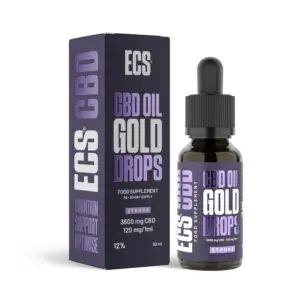
Cannabidiol, commonly known as CBD oil, has become a buzzword in health and wellness circles, leaving many newcomers curious yet cautious.
With its origins in the cannabis plant, CBD oil promises myriad benefits without the psychoactive effects associated with its cousin, THC.
As interest continues to rise, understanding how to incorporate CBD oil into your routine can feel daunting for beginners. Many users are asking: How to use CBD oil?
From selecting the right product to determining the ideal dosage, there’s a lot to consider when it comes to how to use CBD oil.
In this guide, we’ll demystify the basics of CBD oil, offering practical advice and insights to help you confidently explore its potential benefits.

In recent years, CBD oil has emerged as a popular natural remedy for various ailments.
This section will provide a foundational understanding of how to use CBD oil, including its composition, function, and common misconceptions.
CBD oil is a natural extract derived from the cannabis plant. Unlike its more famous relative, THC, CBD does not produce any psychoactive effects.
This means it won’t get you “high.” Instead, CBD is primarily known for its potential therapeutic benefits.
It is extracted, refined and mixed with a carrier oil, often coconut or hemp seed oil, to create a consumable product.
CBD oil is available in various concentrations and can be used in numerous ways, such as tinctures, capsules, and topical applications.
It is often recommended for those seeking natural wellness solutions.
The legality and availability of CBD oil can vary by region. Before you learn how to use CBD oil its vital to ensure it is legal to purchase.
It is important to verify local regulations before purchasing or using any CBD products, ensuring it aligns with legal standards.
CBD interacts with the endocannabinoid system (ECS) in the body, which plays a crucial role in maintaining balance and regulating functions like mood, appetite, and sleep.
The ECS consists of receptors, enzymes, and endocannabinoids, which are naturally occurring compounds in the body.
When CBD enters the body, it influences these receptors, particularly CB1 and CB2 receptors.
While it doesn’t bind directly to these receptors, CBD modulates their activity, potentially improving physical and mental well-being.
Research into the ECS is ongoing, but CBD’s impact on this system points to its potential for supporting various bodily functions.
This interaction is a key reason why many turn to CBD oil for its purported health benefits.
Many misconceptions surround CBD oil, often due to its association with cannabis.
A common myth is that CBD can induce a “high,” similar to marijuana.
However, CBD is not psychoactive and does not alter perception or consciousness.
Another misconception involves its legality.
While CBD is legal in many areas, it is crucial to understand the specific regulations guiding its use in your location, as laws can differ significantly.
It’s also often misunderstood that all CBD products are the same.
In reality, they vary in quality and effectiveness. Consumers should seek products that are third-party tested, ensuring safety and potency.
CBD oil is touted for its numerous health benefits.
This section will delve into how CBD oil can ease anxiety, manage pain, and promote better sleep, supported by emerging research and real-world examples.
Research suggests that CBD may help reduce anxiety and stress.
Its ability to interact with serotonin receptors in the brain could explain this effect.
Serotonin is a neurotransmitter that plays a role in mood regulation.
In a study involving individuals with social anxiety disorder, those who received CBD reported feeling less anxious during tasks such as public speaking.
This points to CBD’s potential in reducing anxiety in stressful situations.
CBD is increasingly used as a natural alternative for managing pain and inflammation.
It is thought to affect the body’s endocannabinoid system, which plays a role in pain perception.
A study on arthritis patients found that CBD gel reduced pain and inflammation in joints without significant side effects.
This highlights CBD’s potential as a therapeutic option for chronic pain sufferers.
CBD’s calming effects may also aid in promoting better sleep.
Many users report improved sleep quality after using CBD oil, likely due to its ability to reduce anxiety and contribute to relaxation.
A study found that nearly 80% of participants experienced less anxiety, and over 65% reported better sleep after a month of CBD use.
This suggests that CBD could be beneficial for those struggling with sleep disorders.
Understanding how to use CBD oil effectively involves choosing the right dosage, exploring methods of consumption, and integrating it into your daily routine.
This section will guide you through these essential aspects.
Determining the right dosage of CBD oil can be crucial for experiencing its benefits.
It often depends on factors such as body weight, the condition being treated, and individual body chemistry.
Finding the right balance is key to maximising CBD’s benefits.
It may take some time, but patience can lead to optimal results.
There are various ways to consume CBD oil, each offering different experiences and benefits.
Popular methods include:
Choosing the method that best suits your lifestyle and needs can enhance your CBD experience.
Each method offers distinct advantages, allowing for personalised use.
Incorporating CBD oil into your daily routine can enhance your wellness journey.
Start by identifying when you feel it’s most needed, such as during stressful periods or before bedtime.
With a thoughtful approach, CBD can become a valuable part of your wellness regimen.
While CBD oil is generally considered safe, it is essential to be aware of potential side effects and risks.
This section will explore common side effects, identify who should avoid CBD, and discuss interactions with medications.
CBD oil is usually well-tolerated, but some users may experience side effects.
Common reactions include:
Most side effects are temporary and resolve as the body adjusts.
Certain individuals should exercise caution or avoid CBD altogether.
Pregnant or breastfeeding women are generally advised to refrain from using CBD due to a lack of conclusive research on safety.
Individuals with liver disorders or those taking medications that strain the liver should also be cautious, as CBD can affect liver enzyme levels.
Consulting a healthcare provider before use is recommended.
Its rate, however CBD can interact with certain medications, potentially altering their effects.
It is crucial to discuss CBD use with a healthcare provider, especially if you’re on medication for:
Understanding these interactions ensures the safe use of CBD alongside other treatments.
Navigating the CBD market can be challenging, given the myriad products available.
This section provides guidance on identifying quality products, understanding product labels, and avoiding common scams, for example counterfeit or fake CBD oils.
When buying CBD oil, quality is paramount.
Look for products that are:
Choosing high-quality products ensures you receive the full benefits of CBD oil without unnecessary risks.
Understanding product labels is crucial for informed purchasing. Labels should clearly indicate:
A comprehensive label allows you to make informed choices and verify the legitimacy of a product.
Unfortunately, the CBD market has its share of scams. To avoid falling victim:
Staying informed and vigilant helps protect against scams, ensuring a safe and effective CBD experience. Buy CBD oil, CBD Capsules or inhalable vape products on the Canavape.co.uk shop.